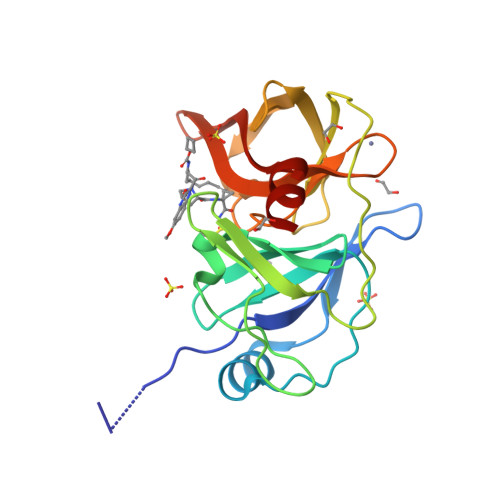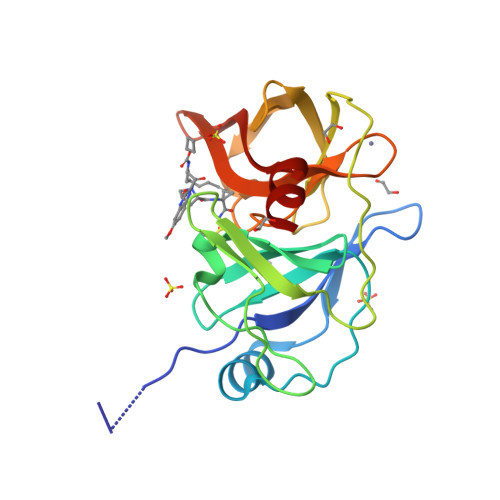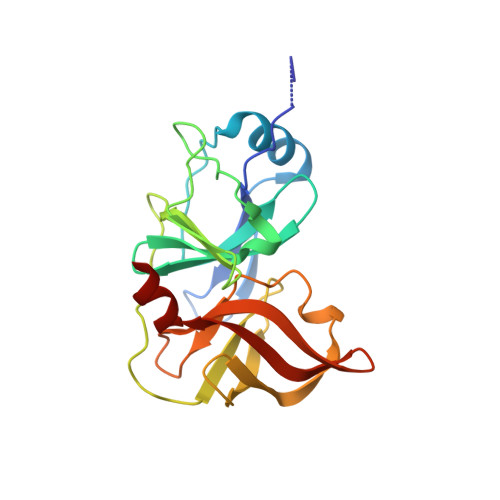Deciphering the Molecular Mechanism of HCV Protease Inhibitor Fluorination as a General Approach to Avoid Drug Resistance.
Zephyr, J., Nageswara Rao, D., Vo, S.V., Henes, M., Kosovrasti, K., Matthew, A.N., Hedger, A.K., Timm, J., Chan, E.T., Ali, A., Kurt Yilmaz, N., Schiffer, C.A.(2022) J Mol Biol 434: 167503-167503
- PubMed: 35183560
- DOI: https://doi.org/10.1016/j.jmb.2022.167503
- Primary Citation of Related Structures:
7MM2, 7MM3, 7MM4, 7MM5, 7MM6, 7MM7, 7MM8, 7MM9, 7MMA, 7MMB, 7MMC, 7MMD, 7MMF, 7MMG, 7MMH, 7MMI, 7MMJ, 7MMK, 7MML - PubMed Abstract:
Third generation Hepatitis C virus (HCV) NS3/4A protease inhibitors (PIs), glecaprevir and voxilaprevir, are highly effective across genotypes and against many resistant variants. Unlike earlier PIs, these compounds have fluorine substitutions on the P2-P4 macrocycle and P1 moieties. Fluorination has long been used in medicinal chemistry as a strategy to improve physicochemical properties and potency. However, the molecular basis by which fluorination improves potency and resistance profile of HCV NS3/4A PIs is not well understood. To systematically analyze the contribution of fluorine substitutions to inhibitor potency and resistance profile, we used a multi-disciplinary approach involving inhibitor design and synthesis, enzyme inhibition assays, co-crystallography, and structural analysis. A panel of inhibitors in matched pairs were designed with and without P4 cap fluorination, tested against WT protease and the D168A resistant variant, and a total of 22 high-resolution co-crystal structures were determined. While fluorination did not significantly improve potency against the WT protease, PIs with fluorinated P4 caps retained much better potency against the D168A protease variant. Detailed analysis of the co-crystal structures revealed that PIs with fluorinated P4 caps can sample alternate binding conformations that enable adapting to structural changes induced by the D168A substitution. Our results elucidate molecular mechanisms of fluorine-specific inhibitor interactions that can be leveraged in avoiding drug resistance.
Organizational Affiliation:
Department of Biochemistry and Molecular Pharmacology, University of Massachusetts Medical School, Worcester, MA 01605, United States.




















